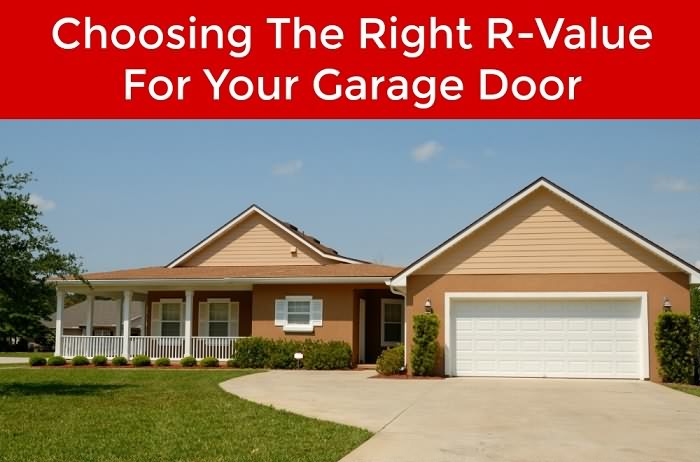What Is R‑Value?
R‑value is a standard measurement that industries use to determine the thermal resistance in different construction materials. Basically, if a particular material isn’t very resistant, it will let hot or cold air pass easily through it, and it won’t create much insulation. This kind of material would get a very low R‑value, whereas materials with better thermal resistance will get higher R‑values.
What kinds of insulation can improve a garage door’s R‑Value?
There are two basic types of insulation for garage doors available today –Polyurethane and Polystyrene. Polyurethane is almost always the better option because it adheres directly to the inner walls of the door. This, and its superior flexular (bending) strength make it an all-around better insulation choice. Plus, it offers more insulation with a higher R-value.
In addition to garage doors, you can also find polyurethane insulation in many homes’ entry doors, and it’s used in car bumpers, too.
Polystyrene, on the other hand, is often used in packing materials, disposable thermal cups, and other products. When used to insulate a garage door, it’s inserted between the two outer steel walls of a three-layer door. It is also often used in two-layer garage doors, where it is bonded to the inner side of the door’s single steel wall.
Is insulation the only thing that affects a door’s R‑Value?
Even if you opt for a garage door made with the very best insulation available today, without good thermal bridges and an optimal weatherproofing system, heat will be able to escape through your garage door. Make sure that your garage door has good weatherstripping around its exterior frame and in between its sections. If your weatherstripping is brittle instead of flexible, it can’t do its job the way it was intended.
What’s a good R‑Value for a garage door?
If you have a detached garage that is insulated, a garage door with an R‑10 or higher rating will be preferable, especially if you have auxiliary heat to the garage. If the garage is not insulated and is unheated, you can go with a garage door with an R‑6 value.
If your garage is attached and insulated (as is the case with most attached garages), you will want a garage door with an R‑12 or higher rating, especially if you have a bedroom or other living space over the garage.
Do i need to heat my garage if i choose a door with an R‑16 value?
This really depends on the climate where you live. If you routinely get temperatures below freezing at night, you’ll want to maintain at least a little bit of heat in the garage. If your garage acts as a workshop, play room for the kids, or if you spend a lot of time in the garage working on your car(s), you might want to heat it a bit more for your comfort.
Interestingly, you will not have to spend as much on heating your garage if you have a garage door with an R-16 value because the heat from your car will increase the ambient temperature. Furthermore, your home’s heat will also help insulate your garage and keep the temperature up, as well.
And, if you live in a hotter climate, having a garage door with an R-16 value will help trap cool air in, making it more efficient and less costly to cool your garage.



